Unique media personality, Ukrainian journalist, a member of the National Union of Journalists of Ukraine (NUJU), with rich and diverse professional experience, Oleh Baturin
He is an in-house correspondent of the Kherson newspaper Novyi Den, a journalist for the Journalistic Investigations Center news agency, head of the Yevroprostir media club, and a holder of the Order of Merit III degree (2022). During the invasion of Ukraine by the Russian Federation, the journalist had to go through a lot. At the Ivano-Frankivsk Journalists’ Solidarity Center (JSC), Oleh Baturin told about his captivity in Russian torture camps, life under occupation, and professional activity.
“On October 1, 2014, I was detained in Crimea. It was my first experience of being in Russian torture chambers.”
Oleh Baturin has been in journalism since 1999, in particular in regional journalism. The Kherson Region was always the focus of his work. He works at the Journalistic Investigations Center. The Journalistic Investigations Center news agency is a media project of the Crimean non-governmental organizations called Information Press Center and Crimean Center for Investigative Journalism, the newsroom of which is temporarily located in Kyiv until the de-occupation of Crimea.
“In 2014, when the war and the occupation of the Crimean Peninsula, then Donetsk and Luhansk Regions, began, I actively worked in this direction, more with an emphasis on Crimea. I went to Crimea in March with a volunteer mission from our Kakhovka Community. [there] I Covered the events that took place there. And on October 1, during another trip, the Russian special services detained me in Crimea. After a few hours, they released me,” says Oleh.
For the investigative journalist, this was the first experience of being in Russian captivity. The interrogations lasted for 10-12 hours.
“The interrogations were harsh. They tried to accuse me of terrorist activities and everything else in the world. Even some kind of theft, allegedly committed in Dzhankoi [a town in the north of Crimea], when I was not physically present in Crimea. It is difficult to say what logic they were guided by. They constantly checked something and took fingerprints. Then their final version appeared – a falsification of documents as if I myself forged a passport of a citizen of Ukraine. They took my passport and returned only the foreign one I had with me. They said that they were sending the document for verification, but they let me go. That’s how I left Crimea,” the journalist recalls.
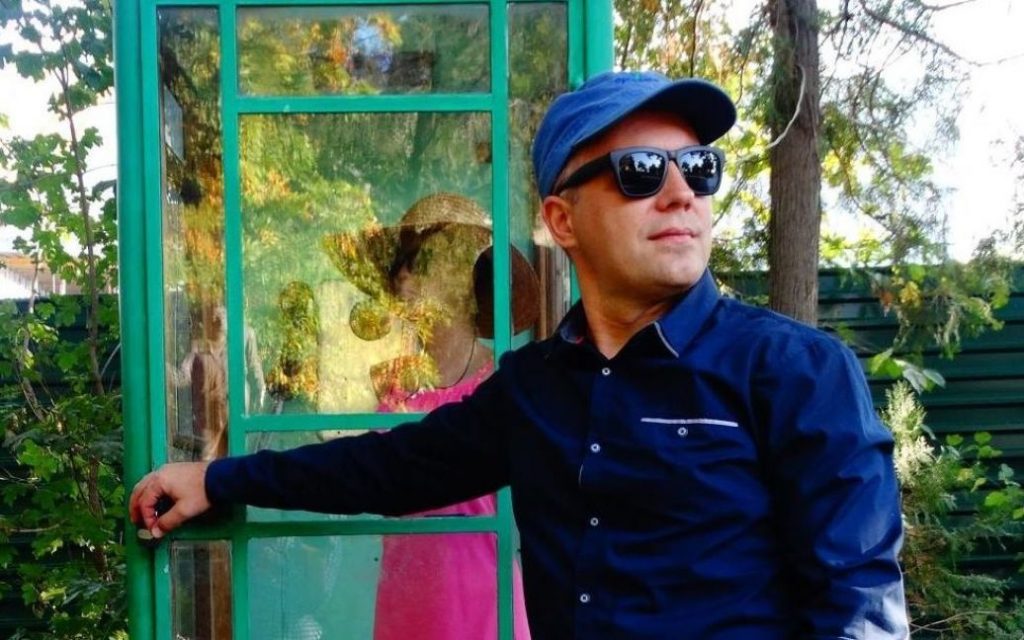
“On March 12, 2022, I was taken into Russian captivity where I spent eight days”
Another test for Oleh Baturin, both in his personal life and in his profession, was being under the occupation. On the first day of the full-scale war, he with his family, who lived on the left bank of the Dnieper River, were trapped by Russian troops. It was difficult to leave, so they decided to stay at home until it was possible to move to the territory controlled by Ukraine.
“Nothing was clear. Like to many Ukrainians, it was not clear to me, first of all, where to go. We have all seen what is happening in the Kyiv Region and along the entire border with Russia. It was absolute chaos. And I’m used to making balanced decisions. But in March, bus service gradually began to resume, civilians began to travel more. Information appeared. I asked many people who passed through the Russian checkpoints how to communicate with the occupiers. So, the situation became clearer, and we started planning our leaving the occupied territory. But suddenly, on March 12, I happened in Russian captivity, where I was held for eight days,” says Oleh Baturin.
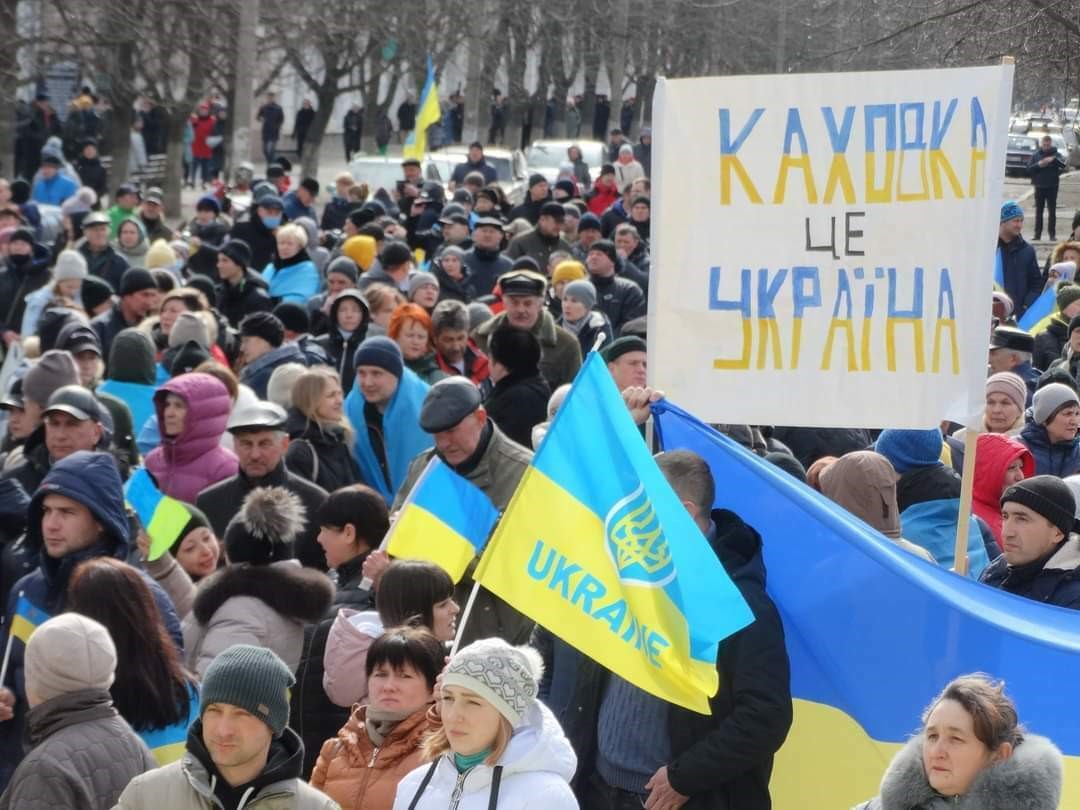
That day, the journalist was supposed to meet with volunteer Serhii Tsyhipa in Kakhovka. Baturin was kidnapped and taken to Nova Kakhovka and then to Kherson, to the building of the Kherson Regional State Administration. Later, it became known that around the same time, Tsyhipa was also kidnapped.
The journalist was interrogated, threatened, and beaten. The first night, they were kept handcuffed to the battery.
“They released me because of the publicity surrounding my kidnapping. There is also a suspicion that, then, they did not quite understand what to do with me. When I was in occupation, I was in constant contact with the leaders of the NUJU. I am grateful to them for their support, especially the moral one. It may seem so banal, but I often remembered – both during the occupation and after it, the first phone calls from my colleagues – they called, talked, reassured… When the Russians captured me – I was in a very depressed state for the first 3-4 days. But it was the memories of these conversations with colleagues from the Union, of these calls, that pulled me out of that state. I thought that I was not alone, that they knew about me, about my kidnapping, and this situation gained publicity. And I am still convinced that that publicity was one of the reasons that influenced the fact that I was let go. Because the Russians told me and the other Ukrainians, they captured that we were nobody, and they forgot about us. On Sunday, March 20, they entered the cell and told them to collect their things. I realized that I would be let go they repent, but not forever,” Oleh Baturin shares his memories.
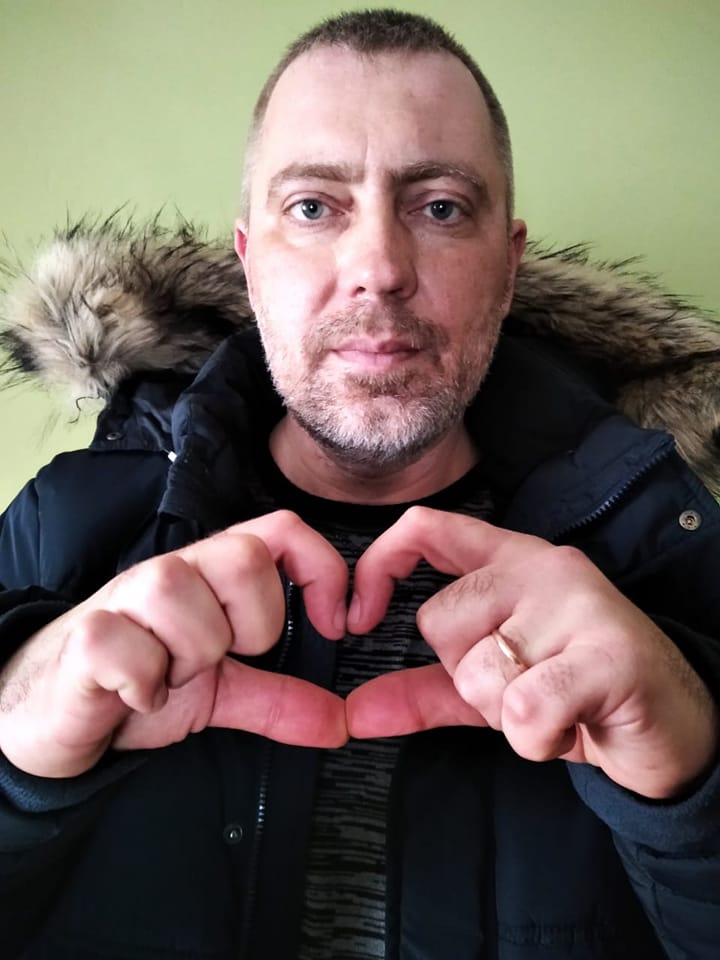
After his release, the journalist began preparing to leave the occupied territories, and on March 31, his family left Kakhovka. The road was extremely difficult. The trip lasted four days. They came under fire, miraculously survived, but eventually managed to escape. Soon, it became known that the Russian military was looking for the journalist in Kakhovka.
“We left on March 31, and on April 1, the Russian military finally seized all the state bodies in Kakhovka, appointed their head of the occupation administration, and I realized that we left more than on time,” Oleh said.
“It is impossible to fully work as a journalist in the occupied territory”
Oleh Baturin and his family moved to Lviv and, later, to Ivano-Frankivsk. He continues his journalistic activities, travels to the Kherson Region, and communicates with fellow countrymen and media colleagues. Sometimes, the material is worked on online.
“After entering the territory controlled by Ukraine, the work increased significantly. There was a period when I even, to some extent, came to terms with the fact that it was unknown whether someone would need me there [in the Ukraine-controlled territory] or whether I would still be able to continue working,” says Oleh. “Because the situation is also difficult in the media with which I cooperated. But I think that thanks to work, I managed to get out of my psychological state. I mean, the work also saved me in a certain way.”
Oleh Baturin works in various genres. This is both writing news and holding investigations. Almost all of his materials have features of investigative journalism. Suspicions have been announced against those involved in cases of commercial activity or treason under many articles. Sentences have already been handed down, including the ones against the Russian military.
“Together with colleagues from the Donetsk Region and Luhansk Region, we prepared the materials of a journalistic investigation, where the names of the Russian military personnel who shot down flight MH17 were established. Our materials formed the basis of a court case at the International Court of Justice in The Hague, and there is already a court verdict against these persons. I am convinced that sooner or later, all the guilty will be punished. It’s just a matter of time,” says the journalist.
“As a journalist, I have many detractors. Almost all of them are traitors or collaborators”
Oleh Baturin admits that over the years of his journalistic activity, he has been many times intimidated. Actually, he is still being intimidated. Recently, a new wave of fakes and threats has spread through social networks. The journalist connects this with the publication that came out in December 2023. He prepared an official statement on this matter and registered it in one of the police stations of Ivano-Frankivsk.
During the conversation, Oleh Baturin emphasized the importance of such a communication platform as the Journalists’ Solidarity Centers of the NUJU. Since the beginning of the full-scale war, he personally repeatedly appealed for help to the JSCs in Lviv and Ivano-Frankivsk.
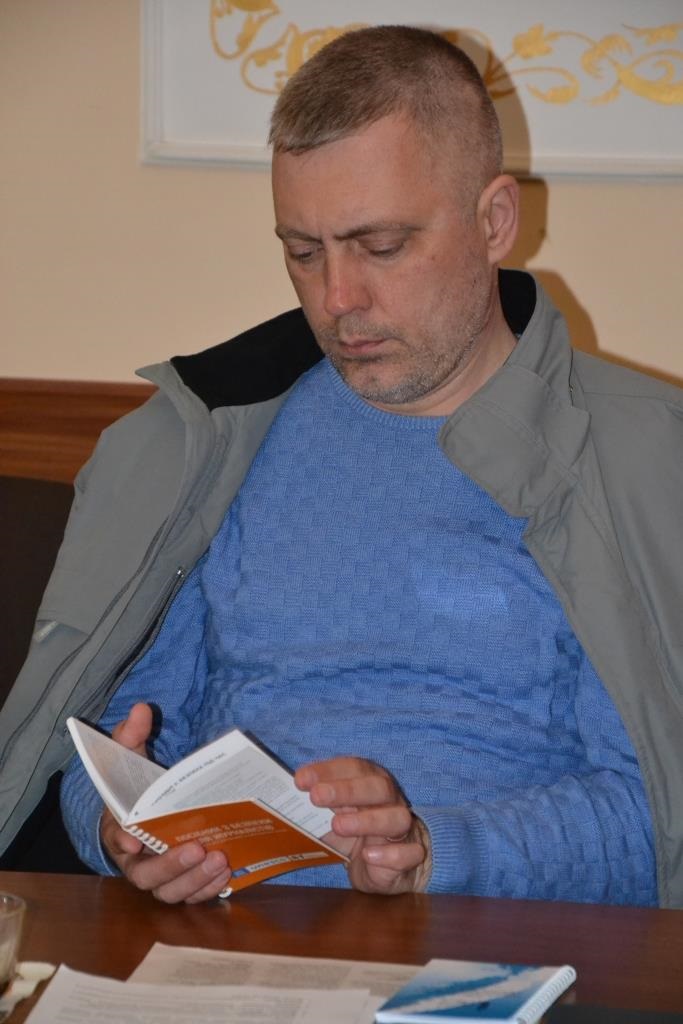
“The Journalists’ Solidarity Centers continue to provide assistance. I have also repeatedly turned to Lviv for help since we lived there. Now, I cooperate with the Ivano-Frankivsk JSC. I would also like to mention other organizations that supported and continue to support media workers. This help was important, timely, and necessary. Especially in winter, when there were constant power outages, and it was necessary to work somewhere urgently on some topic. In addition, in the JSCs, you can get a bulletproof vest for trips to the territory where there is constant shelling by occupiers and a first-aid kit.”
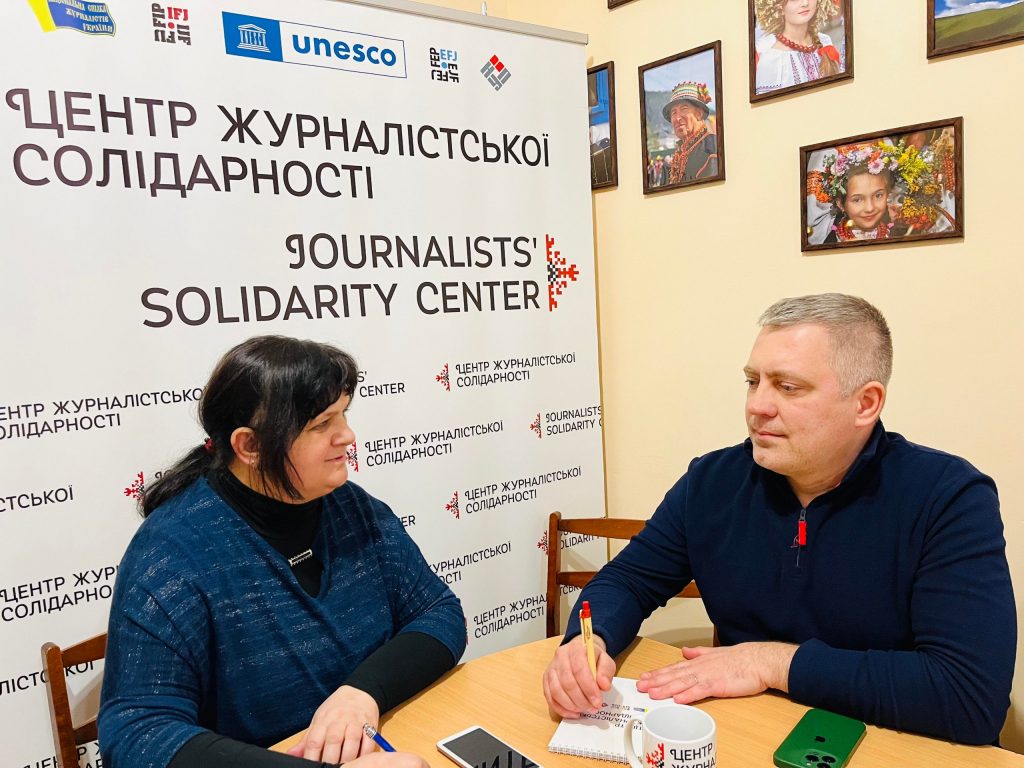
Call the Ivano-Frankivsk JSC at 066 677 0726 (Viktoriya Plakhta, the Ivano-Frankivsk JSC coordinator). The Center’s address is 25 Sichovykh Striltsiv Street.
ABOUT JSC
The Journalists‘ Solidarity Centers is an initiative of the NUJU implemented with the support of the International and European Federations of Journalists and UNESCO. The initiative is designated to help media representatives working in Ukraine during the war. The Centers operate in Kyiv, Lviv, Ivano-Frankivsk, Chernivtsi, Zaporizhzhia, and Dnipro and provide journalists with organizational, technical, legal, psychological, and other types of assistance.
ABOUT UNESCO
UNESCO is the United Nations Educational, Scientific, and Cultural Organization. It contributes to peace and security by promoting international cooperation in education, sciences, culture, communication, and information. UNESCO promotes knowledge sharing and the free flow of ideas to accelerate mutual understanding. It is the coordinator of the UN Action Plan on the Safety of Journalists and the Issue of Impunity, which aims to create a free and safe environment for journalists and media workers, thus strengthening peace, democracy, and sustainable development worldwide. UNESCO is working closely with its partner organizations in Ukraine to provide support to journalists on the ground.
The designations employed and the presentation of material throughout this digest do not imply the expression of any opinion whatsoever on the part of UNESCO concerning the legal status of any country, territory, city, or area or its authorities or concerning the delimitation of its frontiers or boundaries.
The authors are responsible for the choice and the presentation of the facts contained in this digest and for the opinions expressed therein, which are not necessarily those of UNESCO and do not commit to the organization.
Dana Danyliv

 THE NATIONAL UNION OF
JOURNALISTS OF UKRAINE
THE NATIONAL UNION OF
JOURNALISTS OF UKRAINE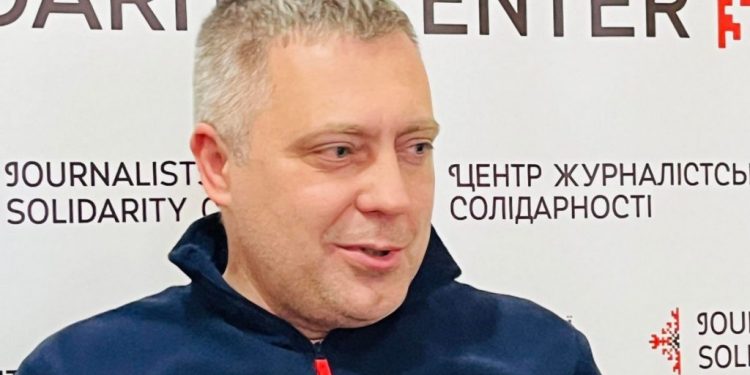
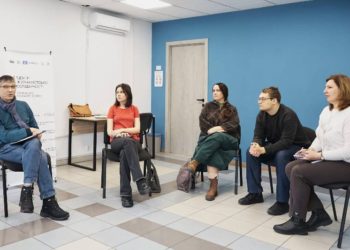
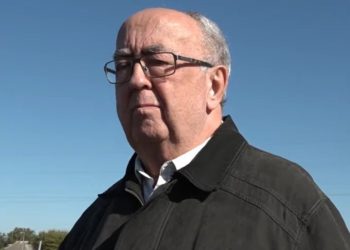
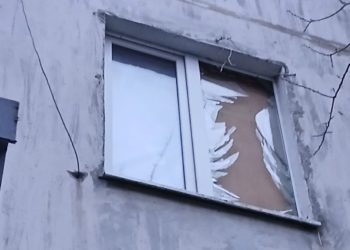













Discussion about this post